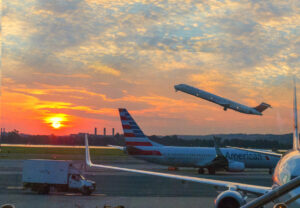Last edit by: emilio911
What is it?
Dynamic Currency Conversion (DCC) is a "service" some merchants and ATM operators offer that will charge a cardholder in the native currency of the card rather than the local currency. A more complete definition and examples are available via this Wikipedia article on DCC. While sold as a convenience to cardholders traveling outside of their home country, it is a pure profit play by the merchants. You may end up paying a fee of up to 8% over the purchase price for accepting DCC. Always decline DCC and asked to be billed in the local currency!

Where will I see it?
You can be hit with DCC anywhere there is a difference between your debit or credit card's denominated currency and the currency of the location where you're trying to use the card. The most common example will be at a merchant overseas, but now some ATMs are offering the service too. While many US cardholders complain about getting tricked into accepting DCC overseas, some merchants in the US have started to use DCC as well.
What is the issue?
Unless you're the merchant or ATM operator, there isn't much benefit to using DCC. Some customers say they prefer knowing exactly how much they'll be charged in their home currency or may not know the exchange rate of the place where they are visiting. For example, if you are in Prague for two days and you don't know how much the Czech Koruna is worth relative to the US Dollar, you might feel more comfortable knowing that you're buying an item for $205.00 versus 4000 CZK. However, the real exchange rate as of January 18, 2014 would place 4000 CZK at $197.18. You just paid an extra $7.82 for the "convenience" of knowing how much you'd be charged!
DCC often charges about a 4% premium over the true exchange rate. The problems don't stop there since many US banks still charge a 3% foreign transaction fee (FTF) for purchases made outside of the US. Not only would you get hit with the $205.00 charge, you could also find yourself facing a total charge of $211.15 if your card has a 3% FTF.
This is a pure money grab from the merchants, and it's billed as an easy way to squeeze additional revenue out of the transaction. Numerous [1, 2] articles have talked about DCC duping many consumers. Discover even has a warning about being tricked into DCC when using a card abroad.
For example, this FlyerTalk member reported that Avis charged his Saudi credit card in Saudi riyals instead of USD for a car rental in Florida without his consent. This has also been a trend for hotels, particularly large chains as indicated here and here.
DCC is simply not worth it for the consumer. Unless you like paying a convenience fee of up to 5% of the total transaction just to know how much you will be billed, you should always decline DCC and ask to be billed in local currency when handing over your card.
Furthermore, it is in your interest to obtain a card that has a 0% FTF. FlyerTalk member kebosabi maintains a fairly comprehensive spreadsheet of EMV-enabled cards ideal for overseas travel, many of which offer a low or 0% FTF as a feature. There is also a wiki at FlyerGuide of various FTF of debit and credit cards.
What can I do to avoid DCC?
American Express currently does not support DCC on its network, so you are safe from DCC if using an American Express card. However, Visa and MasterCard card networks can support DCC, so be vigilant when purchasing abroad with a Visa or MasterCard branded card. There have been reports of being charged DCC with a Discover card in China [citation needed], but primarily the issue is happening with Visa and MasterCard cards.
Before handing your card to the merchant, always specify clearly that you want to be charged in the local currency and that you do not want DCC. For some transactions, you retain control of your card as you dip it into a chip reader and can view on a screen to select which currency you want to use for the transaction. Always select the local currencyto get the best exchange rate. Do not select the card's native currency!
Similarly, for ATM withdrawals, make sure you decline any kind of conversions. Some good examples of what to look for when using an ATM overseas are here and here. You're probably coming off of a long flight and fatigued, but educating yourself beforehand can save you from getting ripped off. The user interfaces on almost all of these ATMs are set up to encourage you to take the bait, and you have to be extremely vigilant not to fall for it.
If you are doing a PIN-based transaction, you should have the opportunity to review the total amount and denomination of the transaction before entering your PIN. If you are doing a signature transaction and the merchant has processed your transaction with DCC, cross out the amount and write "DCC refused" on the receipt. Do not sign the receipt, and demand that the merchant reverse the transaction and run it in the local currency. If no verification is required due to a small purchase amount, ask the merchant to reverse the charge and repeat the transaction using local currency. If all else fails, file a dispute with your card issuer when you return home. Even if it's immaterial, the banks will get the message like they did with EMV.
Some merchants will claim that their systems have to bill you in your native currency. This is a complete lie. But just like a mag stripe only card, this is battle where you have to be prepared. Don't settle for merchants claiming that "it has to be done this way" or "pay cash if you don't want this". Be prepared to walk away, and, if you must complete the transaction, write "DCC refused & merchant didn't give a choice" on the receipt and cross out the amount. Let the merchant know that you will be filing a dispute with your bank.
Disabling DCC
Disabling DCC on ANZ terminals in Australia
ANZ markets DCC as Customer Preferred Currency (CPC). Terminal operators can contact ANZ Merchant Services at 1800 039 025 to have this feature disabled. Currently, your Visa or MasterCard will be subjected to DCC if denominated in: CAD, CHF, DKK, EUR, GBP, HKD, JPY, MYR, NOK, NZD, SEK, SGD, THB, USD, or ZAR. All DCC transactions on ANZ will cause a 2.5% markup. Steps to avoid DCC:
If you see a signature slip with DCC verbiage and a checkbox indicating a currency selection, kindly ask the merchant to void the transaction. If it's a PIN-based transaction, you have an additional opportunity to cancel the transaction because it will ask for your PIN a second time. For instance, if you see "EUR 17.29 KEY PIN" refuse to enter your PIN and start again.
Disabling DCC in China
There are many reports of forced DCC in China, and there is a great thread [closed to new posts] on DCC in China on the the China Destinations forum.
Disabling DCC on Bankcomm terminals in Beijing http://www.hongkongcard.com/forum/fo...p?id=12272&p=2 #19
jair101's DCC instructions of March 2011 http://www.etveg.com/misc/DCC_China.pdf
Disabling DCC in Eurozone and UK
DCC offered in tourist traps (Harrods Knightsbridge/Galleries Lafayette Montparnesse/El Cortes Ingles Grand Via Madrid)
Unlike the rest of the world, Visa Europe does not require merchants to collect a ticked box on the slip (presumably because merchants there don't keep signed slips under Chip-and-PIN)
El Cortes Ingles collects a signature electronically and the DCC selection is made on the signature pad - the choice is respected.
Harrods and GL rely on cashier input in the POS for the currency choice - the cashier may forget to ask. The POS do not offer voiding (only refunds), but since you're given a slip to sign the best thing to do is to deface it before signing and submit chargeback request to issuer bank on return home.
There may be smaller merchants who also collect DCC but I seemed to have pre-empted most of them by saying "charge Euros (Pounds) please"
In Spain all merchants by law are required to provide you with a complaint form called an hoja de reclamaciones if requested. The form has two carbon copies. The customer retains one copy as a record of the complaint. The merchant maintains another copy, and the third is sent to the local consumer protection bureau. Merchants are also required to post a sign conspicuously informing the customer of the right to complain (usually in Spanish and English). Do not accept the lie that they don't have any forms. This is illegal, and you are able to call the police if the merchant refuses to provide you with this official form. It's interesting to see merchants start to squirm when you know the rules, and most merchants will start to be accommodating after you mention it. (Please still fill out the form even if the merchant cooperates after mentioning it because these are likely the merchants who won't otherwise change their behavior.)
Disabling DCC in Hong Kong and Macau
Hong Kong and Macau can get as non-compliant as China, possibly because many acquirers have cross-border operations and know they can get away with non-compliant firmware and procedures.
In practice, if you are given a DCC slip, and the cashier has not taken a choice before giving you your copy, the slip will be processed in your home currency - be prepared to dispute.
Unable to disable Global Payments DCC in Hong Kong instance #1, instance #2
Unable to disable DBS DCC in Fortress Electronics HK
Unable to disable BoC DCC in Free Duty HK
Disabling DCC in Japan and Korea
Japan's just starting out http://www.flyertalk.com/forum/japan...ing-japan.html and http://www.hongkongcard.com/forum/fo...p?id=3939&p=17 #168 but there are no reports I know of where cardholders are compelled to use DCC against their will.
Korea is also not much affected by DCC but where offered, trying to opt out is harder than Japan due to the language barrier (both verbal and written)
http://www.hongkongcard.com/forum/fo...hp?id=4303&p=3 #23
http://www.hongkongcard.com/forum/fo...p?id=12272&p=2 #11
Disabling DCC in the Maldives
Disabling DCC on Global Payment terminals in the Maldives
Disabling DCC in Thailand and Taiwan
DCC present but generally not an issue. Cashier will generate quote slip is usually generated and pass to cardholder. When cardholder refuses, a verbage-free slip denominated in THB/TWD will be produced.
Certain Taiwan hotels may take deposits in cardholder currency. But these are only pre-authorisations and can be voided in full for TWD-only final checkout payments.
Disabling DCC on Websites
Airbnb - (Since the "loophole" seem not to work anymore, please report if you chargeback the DCC. )
)
Hotwire - You need to select your preferred currency before making a search.
PayPal - The instructions to stop the DCC on a recurring charge are here.
I got duped by DCC already before I found this thread. Is there anything I can do?
If you've been hit with DCC and the merchant did not follow the Visa/MC rules, you should file a dispute with your card issuer. Even if the transaction is a small amount, it's worth it to dispute the charge on principle. Do not let merchants get away with this scam uncontested!
If you were not clearly given a choice of currencies and did not specifically communicate a preference to be billed in your card's native currency - if you did not accept DCC - then you have recourse when filing a dispute with your card issuer. The Visa Product and Service Rules clearly state (p 339):
You can even use terminology from Visa Product and Service Rules when filing the dispute, giving Reason Code 76: Incorrect Currency or Transaction Code. Reason Code 76 is used when the transaction was processed with an incorrect transaction code, or an incorrect currency code, or one of the following:
MasterCard's rules also clearly state that the POI Currency Conversion must be decided by both the merchant and customer. When filing a dispute with a MasterCard, list chargeback Reason Code 4846 from the MasterCard Chargeback Guide, which covers POI currency conversion disputes in the following circumstances:
You do have a choice of currencies. Exercise that choice!
Do not get taken by surprise when faced with DCC, and know your options. As Visa/MC purport, you do have a choice of currencies, but you need to make that choice heard! Don't be complacent in this sneaky tactic by some merchants to pad revenues.
Before going to a different country, get educated. Understand the exchange rate relative to your native currency. Know how to recognize when the merchant is trying to force DCC on the transaction, and pull out all of the stops to make sure it doesn't happen to you.
If you have a chip-and-PIN credit card, it's easier to control the transaction to try to prevent DCC. With chip-and-signature, if you get an uncooperative merchant, deface the merchant's copy of the receipt. Write LOCAL OPTION NOT OFFERED, cross out the DCC currency amount, and sign the receipt.
This will give additional evidence when filing a dispute to get the DCC charges refunded. When filing the dispute, you can use the Visa Exchange Rate Calculator or MasterCard's Currency Conversion Tool to determine the Visa or MasterCard exchange rate on the date the transaction posted to your credit card. Compare this to the DCC value to figure out the amount by which the merchant overcharged you. Don't forget to add in any Foreign Transaction Fee if your card has one. (If it does, you should really consider finding a card for use overseas without a FTF. )
)
Example Images (click for a larger image)
Hotel receipts in China, the Netherlands, and Dubai respectively:



Purchase receipts in China and Korea:


Cancelled translation in Hong Kong:

Novotel in Shenzen:

Dynamic Currency Conversion (DCC) is a "service" some merchants and ATM operators offer that will charge a cardholder in the native currency of the card rather than the local currency. A more complete definition and examples are available via this Wikipedia article on DCC. While sold as a convenience to cardholders traveling outside of their home country, it is a pure profit play by the merchants. You may end up paying a fee of up to 8% over the purchase price for accepting DCC. Always decline DCC and asked to be billed in the local currency!

Where will I see it?
You can be hit with DCC anywhere there is a difference between your debit or credit card's denominated currency and the currency of the location where you're trying to use the card. The most common example will be at a merchant overseas, but now some ATMs are offering the service too. While many US cardholders complain about getting tricked into accepting DCC overseas, some merchants in the US have started to use DCC as well.
What is the issue?
Unless you're the merchant or ATM operator, there isn't much benefit to using DCC. Some customers say they prefer knowing exactly how much they'll be charged in their home currency or may not know the exchange rate of the place where they are visiting. For example, if you are in Prague for two days and you don't know how much the Czech Koruna is worth relative to the US Dollar, you might feel more comfortable knowing that you're buying an item for $205.00 versus 4000 CZK. However, the real exchange rate as of January 18, 2014 would place 4000 CZK at $197.18. You just paid an extra $7.82 for the "convenience" of knowing how much you'd be charged!
DCC often charges about a 4% premium over the true exchange rate. The problems don't stop there since many US banks still charge a 3% foreign transaction fee (FTF) for purchases made outside of the US. Not only would you get hit with the $205.00 charge, you could also find yourself facing a total charge of $211.15 if your card has a 3% FTF.
This is a pure money grab from the merchants, and it's billed as an easy way to squeeze additional revenue out of the transaction. Numerous [1, 2] articles have talked about DCC duping many consumers. Discover even has a warning about being tricked into DCC when using a card abroad.
For example, this FlyerTalk member reported that Avis charged his Saudi credit card in Saudi riyals instead of USD for a car rental in Florida without his consent. This has also been a trend for hotels, particularly large chains as indicated here and here.
DCC is simply not worth it for the consumer. Unless you like paying a convenience fee of up to 5% of the total transaction just to know how much you will be billed, you should always decline DCC and ask to be billed in local currency when handing over your card.
Furthermore, it is in your interest to obtain a card that has a 0% FTF. FlyerTalk member kebosabi maintains a fairly comprehensive spreadsheet of EMV-enabled cards ideal for overseas travel, many of which offer a low or 0% FTF as a feature. There is also a wiki at FlyerGuide of various FTF of debit and credit cards.
What can I do to avoid DCC?
American Express currently does not support DCC on its network, so you are safe from DCC if using an American Express card. However, Visa and MasterCard card networks can support DCC, so be vigilant when purchasing abroad with a Visa or MasterCard branded card. There have been reports of being charged DCC with a Discover card in China [citation needed], but primarily the issue is happening with Visa and MasterCard cards.
Before handing your card to the merchant, always specify clearly that you want to be charged in the local currency and that you do not want DCC. For some transactions, you retain control of your card as you dip it into a chip reader and can view on a screen to select which currency you want to use for the transaction. Always select the local currencyto get the best exchange rate. Do not select the card's native currency!
Similarly, for ATM withdrawals, make sure you decline any kind of conversions. Some good examples of what to look for when using an ATM overseas are here and here. You're probably coming off of a long flight and fatigued, but educating yourself beforehand can save you from getting ripped off. The user interfaces on almost all of these ATMs are set up to encourage you to take the bait, and you have to be extremely vigilant not to fall for it.
If you are doing a PIN-based transaction, you should have the opportunity to review the total amount and denomination of the transaction before entering your PIN. If you are doing a signature transaction and the merchant has processed your transaction with DCC, cross out the amount and write "DCC refused" on the receipt. Do not sign the receipt, and demand that the merchant reverse the transaction and run it in the local currency. If no verification is required due to a small purchase amount, ask the merchant to reverse the charge and repeat the transaction using local currency. If all else fails, file a dispute with your card issuer when you return home. Even if it's immaterial, the banks will get the message like they did with EMV.
Some merchants will claim that their systems have to bill you in your native currency. This is a complete lie. But just like a mag stripe only card, this is battle where you have to be prepared. Don't settle for merchants claiming that "it has to be done this way" or "pay cash if you don't want this". Be prepared to walk away, and, if you must complete the transaction, write "DCC refused & merchant didn't give a choice" on the receipt and cross out the amount. Let the merchant know that you will be filing a dispute with your bank.
Disabling DCC
Disabling DCC on ANZ terminals in Australia
ANZ markets DCC as Customer Preferred Currency (CPC). Terminal operators can contact ANZ Merchant Services at 1800 039 025 to have this feature disabled. Currently, your Visa or MasterCard will be subjected to DCC if denominated in: CAD, CHF, DKK, EUR, GBP, HKD, JPY, MYR, NOK, NZD, SEK, SGD, THB, USD, or ZAR. All DCC transactions on ANZ will cause a 2.5% markup. Steps to avoid DCC:
- Insert, swipe, or tap your payment card
- Have the cashier select credit (CR)
- The terminal will display CREDIT ACCOUNT
- If applicable, enter your PIN
- The terminal will display PROCESSING \ PLEASE WAIT
- The terminal will display EXCH <exchange rate> \ <currency> <amount> \ ACCEPT RATE? \ ENTER=YES CLR=NO
- Instruct the cashier to press the yellow CLEAR (CLR) button (If entering a PIN, you can retain the terminal to perform this step yourself. If entering a signature, you can ask for the terminal to control this process, not indicating that it's a chip-and-signature card.)
- The transaction should now process without DCC
If you see a signature slip with DCC verbiage and a checkbox indicating a currency selection, kindly ask the merchant to void the transaction. If it's a PIN-based transaction, you have an additional opportunity to cancel the transaction because it will ask for your PIN a second time. For instance, if you see "EUR 17.29 KEY PIN" refuse to enter your PIN and start again.
Disabling DCC in China
There are many reports of forced DCC in China, and there is a great thread [closed to new posts] on DCC in China on the the China Destinations forum.
Disabling DCC on Bankcomm terminals in Beijing http://www.hongkongcard.com/forum/fo...p?id=12272&p=2 #19
jair101's DCC instructions of March 2011 http://www.etveg.com/misc/DCC_China.pdf
Disabling DCC in Eurozone and UK
DCC offered in tourist traps (Harrods Knightsbridge/Galleries Lafayette Montparnesse/El Cortes Ingles Grand Via Madrid)
Unlike the rest of the world, Visa Europe does not require merchants to collect a ticked box on the slip (presumably because merchants there don't keep signed slips under Chip-and-PIN)
El Cortes Ingles collects a signature electronically and the DCC selection is made on the signature pad - the choice is respected.
Harrods and GL rely on cashier input in the POS for the currency choice - the cashier may forget to ask. The POS do not offer voiding (only refunds), but since you're given a slip to sign the best thing to do is to deface it before signing and submit chargeback request to issuer bank on return home.
There may be smaller merchants who also collect DCC but I seemed to have pre-empted most of them by saying "charge Euros (Pounds) please"
In Spain all merchants by law are required to provide you with a complaint form called an hoja de reclamaciones if requested. The form has two carbon copies. The customer retains one copy as a record of the complaint. The merchant maintains another copy, and the third is sent to the local consumer protection bureau. Merchants are also required to post a sign conspicuously informing the customer of the right to complain (usually in Spanish and English). Do not accept the lie that they don't have any forms. This is illegal, and you are able to call the police if the merchant refuses to provide you with this official form. It's interesting to see merchants start to squirm when you know the rules, and most merchants will start to be accommodating after you mention it. (Please still fill out the form even if the merchant cooperates after mentioning it because these are likely the merchants who won't otherwise change their behavior.)
Disabling DCC in Hong Kong and Macau
Hong Kong and Macau can get as non-compliant as China, possibly because many acquirers have cross-border operations and know they can get away with non-compliant firmware and procedures.
In practice, if you are given a DCC slip, and the cashier has not taken a choice before giving you your copy, the slip will be processed in your home currency - be prepared to dispute.
Unable to disable Global Payments DCC in Hong Kong instance #1, instance #2
Unable to disable DBS DCC in Fortress Electronics HK
Unable to disable BoC DCC in Free Duty HK
Disabling DCC in Japan and Korea
Japan's just starting out http://www.flyertalk.com/forum/japan...ing-japan.html and http://www.hongkongcard.com/forum/fo...p?id=3939&p=17 #168 but there are no reports I know of where cardholders are compelled to use DCC against their will.
Korea is also not much affected by DCC but where offered, trying to opt out is harder than Japan due to the language barrier (both verbal and written)
http://www.hongkongcard.com/forum/fo...hp?id=4303&p=3 #23
http://www.hongkongcard.com/forum/fo...p?id=12272&p=2 #11
Disabling DCC in the Maldives
Disabling DCC on Global Payment terminals in the Maldives
Disabling DCC in Thailand and Taiwan
DCC present but generally not an issue. Cashier will generate quote slip is usually generated and pass to cardholder. When cardholder refuses, a verbage-free slip denominated in THB/TWD will be produced.
Certain Taiwan hotels may take deposits in cardholder currency. But these are only pre-authorisations and can be voided in full for TWD-only final checkout payments.
Disabling DCC on Websites
Airbnb - (Since the "loophole" seem not to work anymore, please report if you chargeback the DCC.
 )
)Hotwire - You need to select your preferred currency before making a search.
PayPal - The instructions to stop the DCC on a recurring charge are here.
I got duped by DCC already before I found this thread. Is there anything I can do?
If you've been hit with DCC and the merchant did not follow the Visa/MC rules, you should file a dispute with your card issuer. Even if the transaction is a small amount, it's worth it to dispute the charge on principle. Do not let merchants get away with this scam uncontested!
If you were not clearly given a choice of currencies and did not specifically communicate a preference to be billed in your card's native currency - if you did not accept DCC - then you have recourse when filing a dispute with your card issuer. The Visa Product and Service Rules clearly state (p 339):
- Merchants that offer DCC must be compliant with the regulations
- Inform the cardholder that DCC is optional
- Not impose any additional requirements to use local currency
- Not use any language or procedures that may cause the cardholder to choose DCC by default
- Not convert a transaction in the local currency to the card's billing currency after the transaction has completed
- Ensure that the cardholder expressly agrees to DCC
You can even use terminology from Visa Product and Service Rules when filing the dispute, giving Reason Code 76: Incorrect Currency or Transaction Code. Reason Code 76 is used when the transaction was processed with an incorrect transaction code, or an incorrect currency code, or one of the following:
- Merchant did not deposit a transaction receipt in the country where the transaction occurred
- Cardholder was not advised that Dynamic Currency Conversion (DCC) would occur
- Cardholder was refused the choice of paying in the merchant�s local currency
- Merchant processed a credit refund and did not process a reversal or adjustment within 30 calendar days for a transaction receipt processed in error
MasterCard's rules also clearly state that the POI Currency Conversion must be decided by both the merchant and customer. When filing a dispute with a MasterCard, list chargeback Reason Code 4846 from the MasterCard Chargeback Guide, which covers POI currency conversion disputes in the following circumstances:
- The cardholder states that he or she was not given the opportunity to choose the desired currency in which the transactions was completed or did not agree to the currency of the transaction, or
- POI currency conversion took place into a currency that is not the cardholder's billing currency, or
- POI currency conversion took place when the goods or services were priced in the cardholder's billing currency, or
- POI currency conversion took place when cash was disbursed in the cardholdeer's billing currency.
You do have a choice of currencies. Exercise that choice!
Do not get taken by surprise when faced with DCC, and know your options. As Visa/MC purport, you do have a choice of currencies, but you need to make that choice heard! Don't be complacent in this sneaky tactic by some merchants to pad revenues.
Before going to a different country, get educated. Understand the exchange rate relative to your native currency. Know how to recognize when the merchant is trying to force DCC on the transaction, and pull out all of the stops to make sure it doesn't happen to you.
If you have a chip-and-PIN credit card, it's easier to control the transaction to try to prevent DCC. With chip-and-signature, if you get an uncooperative merchant, deface the merchant's copy of the receipt. Write LOCAL OPTION NOT OFFERED, cross out the DCC currency amount, and sign the receipt.
This will give additional evidence when filing a dispute to get the DCC charges refunded. When filing the dispute, you can use the Visa Exchange Rate Calculator or MasterCard's Currency Conversion Tool to determine the Visa or MasterCard exchange rate on the date the transaction posted to your credit card. Compare this to the DCC value to figure out the amount by which the merchant overcharged you. Don't forget to add in any Foreign Transaction Fee if your card has one. (If it does, you should really consider finding a card for use overseas without a FTF.
 )
)Example Images (click for a larger image)
Hotel receipts in China, the Netherlands, and Dubai respectively:



Purchase receipts in China and Korea:


Cancelled translation in Hong Kong:

Novotel in Shenzen:

Dynamic Currency Conversion (DCC) [2014-2016]
#1831

Join Date: Dec 2003
Location: Amsterdam, Netherlands
Programs: KL Gold, SQ KF Gold, CX Green
Posts: 9,514
Perhaps the answer to the following question is somewhere upthread - I apologize if it is:
How common is DCC for foreign cardholders when visiting the USA?
How common is DCC for foreign cardholders when visiting the USA?
#1832
Original Poster




Join Date: Jul 2009
Location: SJC
Programs: AA, AS, Marriott
Posts: 6,338
#1833

Join Date: Nov 2014
Location: NYC
Posts: 557
The prices in the stores were priced in both currencies, but the KYD pricing was more advantageous than using their in-house conversion rate.
#1834
Original Poster




Join Date: Jul 2009
Location: SJC
Programs: AA, AS, Marriott
Posts: 6,338
I called them up today and inquired some more, and yes, they have a dual currency account, and they cannot select which currency to charge you in. USD cards get USD, all other currencies get KYD.
The prices in the stores were priced in both currencies, but the KYD pricing was more advantageous than using their in-house conversion rate.
The prices in the stores were priced in both currencies, but the KYD pricing was more advantageous than using their in-house conversion rate.
#1835

Join Date: May 2009
Location: SIN (with a bit of ZRH sprinkled in)
Programs: KrisFlyer Gold
Posts: 9,530
Some experience from my visit to Turkey just now:
At ATMs, I either had a mild form of DCC (single question, easily avoidable by pressing "No", even if probably still lots of people will fail for it for it's wording) or none. At shops, didn't experienced any DCC attempt at all. So far so good..
At ATMs, I either had a mild form of DCC (single question, easily avoidable by pressing "No", even if probably still lots of people will fail for it for it's wording) or none. At shops, didn't experienced any DCC attempt at all. So far so good..
#1836




Join Date: Jan 2011
Location: GAI
Programs: TK *G, all statuses that come with Ritz, Amex Plat, Citi Prestige cards
Posts: 367
Some experience from my visit to Turkey just now:
At ATMs, I either had a mild form of DCC (single question, easily avoidable by pressing "No", even if probably still lots of people will fail for it for it's wording) or none. At shops, didn't experienced any DCC attempt at all. So far so good..
At ATMs, I either had a mild form of DCC (single question, easily avoidable by pressing "No", even if probably still lots of people will fail for it for it's wording) or none. At shops, didn't experienced any DCC attempt at all. So far so good..
The ATM's, on the other hand, are a whole different animal. I've been offered DCC rates as bad as 5.5% (BNP Paribas/TEB having that dubious honor). ING, Deniz and Garanti also try to hit you with it. For Garanti, one assumes they must be making some serious cash - they actually have an ad in the domestic terminal at AYT urging travelers to choose their ATMs to "benefit" from DCC and bragging about the number of currencies they support. If you don't want to deal with DCC offers and/or want to support non-DCC banks in principle, try YapiKredi, Sekerbank and Halkbank. Think Vaktif and Akbank are also OK if I remember correctly.
#1837
Join Date: Oct 2014
Location: SAN
Posts: 61
I got stuck with DCC at a Paris restaurant. I handed my arrival+ to the waiter and without saying anything he ran my card through the card reader, pushed a few buttons and presented me with a receipt with DCC. I protested and told him to charge me in euros and not dollars. He claimed that he had charged me in euros and the receipt was just "showing me" what the charge translated to in dollars. I told him that this was incorrect and asked him if HE had chosen USD on the terminal. He said he had and it doesn't matter if he chooses USD or euros that it is "the same thing." I told him that it was in fact not the same thing. He seemed very confused and I further explained to him what DCC was and why it was bad. He still seemed confused and seemed slightly annoyed that I was complaining so much about it. His coworkers starting speaking to each other (they were speaking in French so I have no idea what they were saying) but eventually one of his workers chimed in and said something to the effect of that I should just pay in cash in the future (I think he honestly meant this in a sincere fashion and not in a rude way). He gave me a card with the restaurant contact information and suggested if I was still unhappy to "talk to my bank about it." I eventually gave up, circled the euro amount and signed the slip. I figured the worst case scenario is I eat the ~$1.50 difference which is better than creating an even bigger scene and potentially having the waiter try and get the police involved if I refused to sign the slip (I'm not sure what he actually would have done if I refused to sign, I'm just saying it isn't worth finding out). I contacted Barclays about this and after talking to a complaints representative they are making me submit the receipt and problem in writing. The representative said she knew what DCC was but I got the impression that she didn't seem to think it was that big of a deal. I asked the representative if this is a common complaint and she said I was the first person she had complain about DCC. I made some comment about most people probably don't realize when this happens to them. Anyways, I find DCC so frustrating and wish there was a way to ban it so I didn't have to worry about it.
#1838
Join Date: Dec 2007
Location: MSP
Programs: Delta 1 MM, Platinum. Marriott-Hilton Gold
Posts: 312
I traveled to Kazakhstan this month. At all places including the hotel I stayed in I always asked to pay in local currency. I was never given a USD bill. But I did see my colleagues who were not that alert, who paid in USD. What I found was that the DCC in Almaty and Astana was actually better than the converted rate. While in India it was horrible. When I checked in, they do a hold in USD and I do not protest DCC there, because it gives me a look in to the DCC rates. The USD rate was above 62 and the DCC rate was around 59 Rupees. DCC varies from country to country.
#1839
Original Poster




Join Date: Jul 2009
Location: SJC
Programs: AA, AS, Marriott
Posts: 6,338
I contacted Barclays about this and after talking to a complaints representative they are making me submit the receipt and problem in writing. The representative said she knew what DCC was but I got the impression that she didn't seem to think it was that big of a deal. I asked the representative if this is a common complaint and she said I was the first person she had complain about DCC. I made some comment about most people probably don't realize when this happens to them. Anyways, I find DCC so frustrating and wish there was a way to ban it so I didn't have to worry about it.
The good thing with MasterCard is that their DCC chargeback options seem, in theory, to be far more permissive than Visa's. With MasterCard you simply have to state that you weren't given the option to pay in the currency of your choosing. As long as you defaced the receipt, it should work in your favor assuming that the issuer is favorable to a chargeback.
#1840
FlyerTalk Evangelist

Join Date: Jul 2003
Location: Florida
Posts: 29,992
Avis Sleazy DCC
Y'all probably already know that when you make reservation on the Avis US site the final page always shows USD - but that is not DCC because I found the rate used to convert the display was quite close to the actual rate.
What Avis does is, its billing system almost always automatically bill you in USD. Even the contract itself in many European countries would have the sneaky clause there that YOU agree to be billed in the currency of your card... We have to always make sure not just at the pick up to change that clause, but also at the return to make sure the close out statement is in Euro or whatever currency.
The last 3 rentals were on AMEX Plat that was in his profile so there was no such hassle.
However we want to use Citi Premier on a May rental in Germany because Premier changes its earning scale effective on Apr 19 to 3x on travel expenses, while the AMEX PLAT is a straight 1x. We also dont want to cumulate any more Membership Reward points in preparing to ditch the PLAT card soon because now Citi's Prestige Card is a serious contender of AMEX PLAT (with better benefits actually).
I went to husband's Avis Preferred profile to change the card on file. When I put in Mastercard, it immediately brought up a Note, in the wordings as if in your benefit, that Mastercard and Visa offer an opportunity for the members to pay in their cards currency. AND, the box of the Acceptance Statement is already checked! The 3% DCC fee is mentioned, but is the LAST SENTENCE of a bunch of mumble jumble about Avis would always use the exchange rate at the time of the transaction blah blah blah.
In other words if you use Mastercard / Visa in your Avis Profile, the system DEFAULT you to agree on DCC!
Anyone who does not know about DCC / not read the long paragraph to the very last sentence, would have mindless click the SAVE button and be duped.
What Avis does is, its billing system almost always automatically bill you in USD. Even the contract itself in many European countries would have the sneaky clause there that YOU agree to be billed in the currency of your card... We have to always make sure not just at the pick up to change that clause, but also at the return to make sure the close out statement is in Euro or whatever currency.
The last 3 rentals were on AMEX Plat that was in his profile so there was no such hassle.
However we want to use Citi Premier on a May rental in Germany because Premier changes its earning scale effective on Apr 19 to 3x on travel expenses, while the AMEX PLAT is a straight 1x. We also dont want to cumulate any more Membership Reward points in preparing to ditch the PLAT card soon because now Citi's Prestige Card is a serious contender of AMEX PLAT (with better benefits actually).
I went to husband's Avis Preferred profile to change the card on file. When I put in Mastercard, it immediately brought up a Note, in the wordings as if in your benefit, that Mastercard and Visa offer an opportunity for the members to pay in their cards currency. AND, the box of the Acceptance Statement is already checked! The 3% DCC fee is mentioned, but is the LAST SENTENCE of a bunch of mumble jumble about Avis would always use the exchange rate at the time of the transaction blah blah blah.
In other words if you use Mastercard / Visa in your Avis Profile, the system DEFAULT you to agree on DCC!

Anyone who does not know about DCC / not read the long paragraph to the very last sentence, would have mindless click the SAVE button and be duped.

#1841
Join Date: Feb 2013
Location: Irvine CA & PEK
Programs: Hyatt Globalist, Marriott Titanium, Hilton Diamond, IHG Spire Ambassador, Qantas Platinum, United S
Posts: 664
Would really like to know which restaurant that is.
I swiped my card for 10+ times in Paris restaurants with super vigilance, but encountered no DCC at all... So I dubbed Paris safe in 2014.
Seems like next time I would be on high alert again in Paris.
Dropped Avis long ago, but did see this option checked by default two years ago.
I swiped my card for 10+ times in Paris restaurants with super vigilance, but encountered no DCC at all... So I dubbed Paris safe in 2014.
Seems like next time I would be on high alert again in Paris.
Dropped Avis long ago, but did see this option checked by default two years ago.
#1842
Join Date: Oct 2014
Location: SAN
Posts: 61
Would really like to know which restaurant that is.
I swiped my card for 10+ times in Paris restaurants with super vigilance, but encountered no DCC at all... So I dubbed Paris safe in 2014.
Seems like next time I would be on high alert again in Paris.
Dropped Avis long ago, but did see this option checked by default two years ago.
I swiped my card for 10+ times in Paris restaurants with super vigilance, but encountered no DCC at all... So I dubbed Paris safe in 2014.
Seems like next time I would be on high alert again in Paris.
Dropped Avis long ago, but did see this option checked by default two years ago.
47 Avenue de la Bourdonnais
75007 Paris
France
Definitely geared towards tourists (but what are you going to do when hungry).
This restaurant was the only place I had any trouble, my hotel and the tourism desk in Gare de Nord asked me first and of course I said Euros and I had no issues. I think in general Paris is reasonably safe in regards to DCC, but you still have to be alert. Although I only used cash for small touristy purchases.
Ironically, I also rented a car from Avis (I'm Avis preferred) in Belgium and was very confused on if it is DCC or not. When I made the reservation I could only get a quote in Dollars. I used an american express to pay and the rental was charged in dollars and was exactly the price in the reservation. The paperwork had that same language about being offered a choice of currency (I of course was never given that option). I'm not as upset about this one because I was actually charged the price I was quoted. Interestingly, I was not charged the 2.7% American Express foreign transaction fee.
#1843

Join Date: May 2009
Location: SIN (with a bit of ZRH sprinkled in)
Programs: KrisFlyer Gold
Posts: 9,530
Quick update: no DCC attempt in Germany so far.
Well. They still dont accept cards that widely.. even some petrol stations are cash only..
Well. They still dont accept cards that widely.. even some petrol stations are cash only..
#1844
FlyerTalk Evangelist

Join Date: Jul 2003
Location: Florida
Posts: 29,992
The Netherlands is another EU country where card usage is very low. Not a single grocery store in Amsterdam takes card. Buying transportation tickets with card you are gauged with 0.50 euro surcharge. Then if a human had to process your transaction, then you would be out another 1 euro!
#1845
Join Date: Dec 2007
Location: Cambridge, UK
Posts: 261
The Netherlands is another EU country where card usage is very low. Not a single grocery store in Amsterdam takes card. Buying transportation tickets with card you are gauged with 0.50 euro surcharge. Then if a human had to process your transaction, then you would be out another 1 euro!
You'll find that the (annoying) coin only train/bus ticket machines always accept these cards without surcharge.
As for foreign visitors getting hold of these types of cards, well, there is only one mainstream bank in the UK offering Maestro to new customers (some banks previously offered this, but switched to Visa Debit) and none offer V-Pay.






















